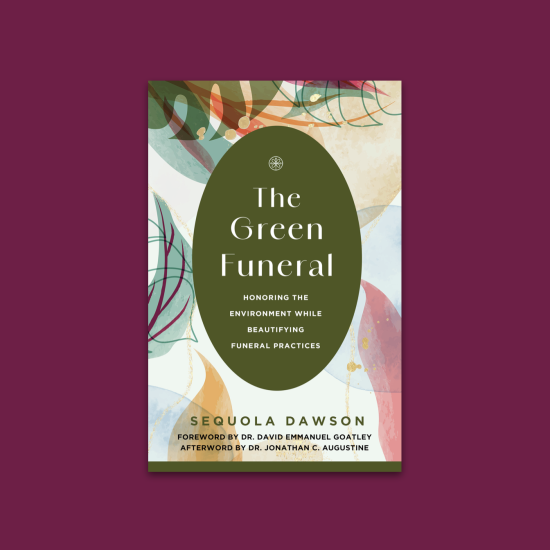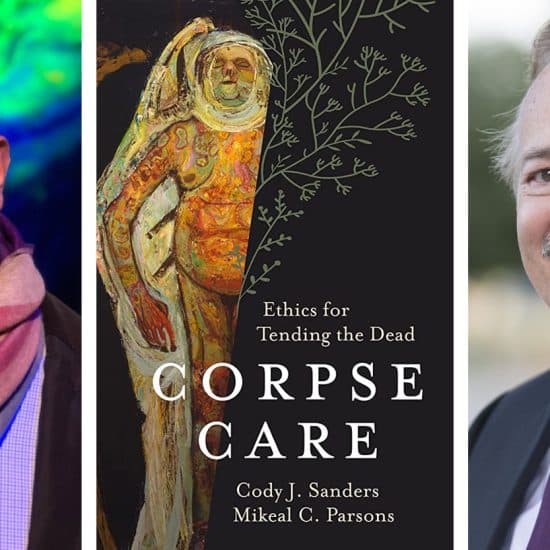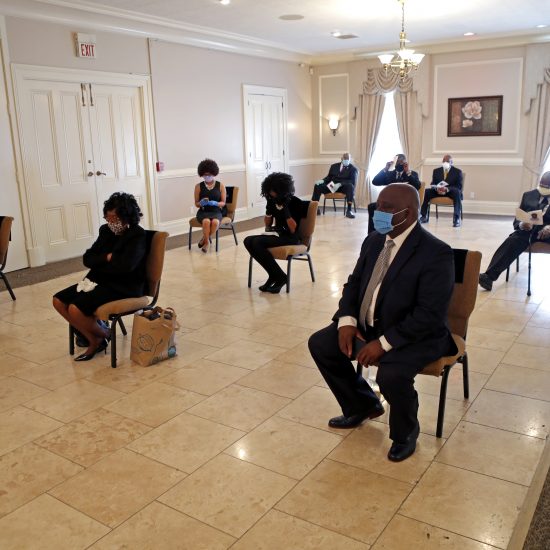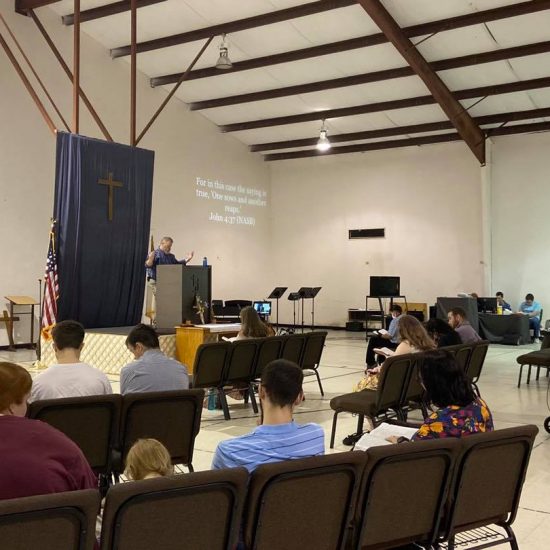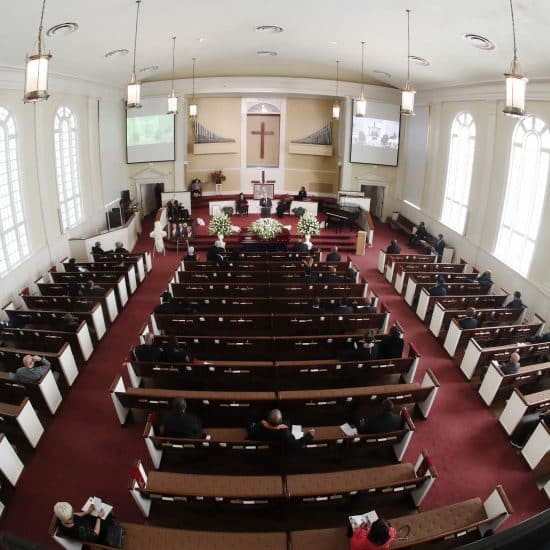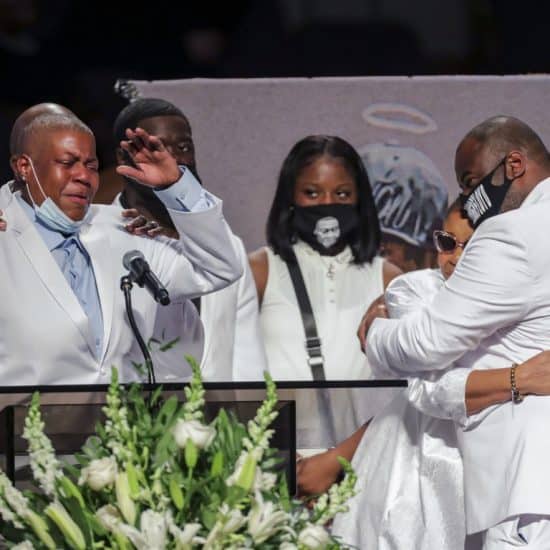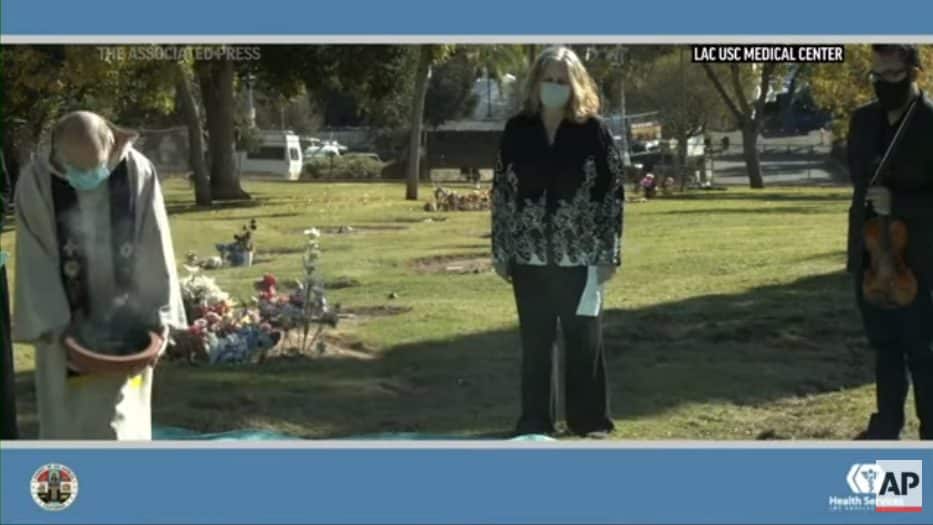
LOS ANGELES (AP) — During their lives they somehow slipped out of sight to the rest of us, and when death came to these 1,547 residents of Los Angeles County, they had become anonymous to the world.
Rather than simply place their remains in an unmarked grave after three years of fruitless searching for family, local religious leaders and Los Angeles County officials honored them Thursday (Dec. 3) with music and prayer — but with a different approach during this year’s annual Ceremony of the Unclaimed Dead.
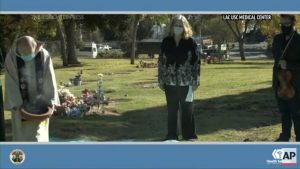
Screengrab of a ceremony in Los Angeles to honor the burial of the county’s unclaimed dead on Dec. 3, 2020.
As solemn music was played, prayers said, and incense burned over the graves of the deceased, only a handful of people — all wearing masks — were present in a small, nearly deserted Los Angeles cemetery.
Instead of inviting the public as in years past, officials streamed the 30-minute ceremony live on Facebook to keep people safe during the coronavirus pandemic.
“Our memorial this year is very different,” Father Chris Ponnet said toward the ceremony’s conclusion.
But the director of the department of spiritual care for Los Angeles County-USC Medical Center, made it clear he considered it no less important.
“About two days ago I got a call in the office, and it was from a person looking for their loved one, and it was very specific when they saw the person for the last time several years ago,” he said before opening the ceremony with a prayer.
“It reminded me why we are here,” he continued, “and why these 1,547 remains are buried and we honor today individual lives, family, and friends disconnected for various reasons.”
The grave will eventually have a marker noting all those placed there died in 2017.
Ponnet was followed to a gravesite podium by Cantor Richard Schwartz, who offered a brief prayer and song as burning incense was wafted over the grave. Still others came forward to recite the Lord’s Prayer in English, Spanish, and Japanese, as the podium and its microphone were wiped down with disinfectant before each speaker approached.
Amy Fogerson of the group Street Symphony performed a somber yet soaring version of “Amazing Grace,” accompanied by violinist Vijay Gupta while a gentle breeze sent a few autumn-colored leaves falling to the earth.
Before Gupta concluded the ceremony with a sonata by Johann Sebastian Bach, Presbyterian minister Elizabeth Biggs Zehnder, who had recited the Lord’s Prayer in Spanish, spoke. So did Episcopalian Chaplain Brian Tucker, who read a blessing titled “On Passing a Graveyard.”
The blessing read in part: “May perpetual light shine upon the faces of all who rest here. May the lives they lived unfold further in spirit. May all their past travail find ease in the kindness of clay.”

